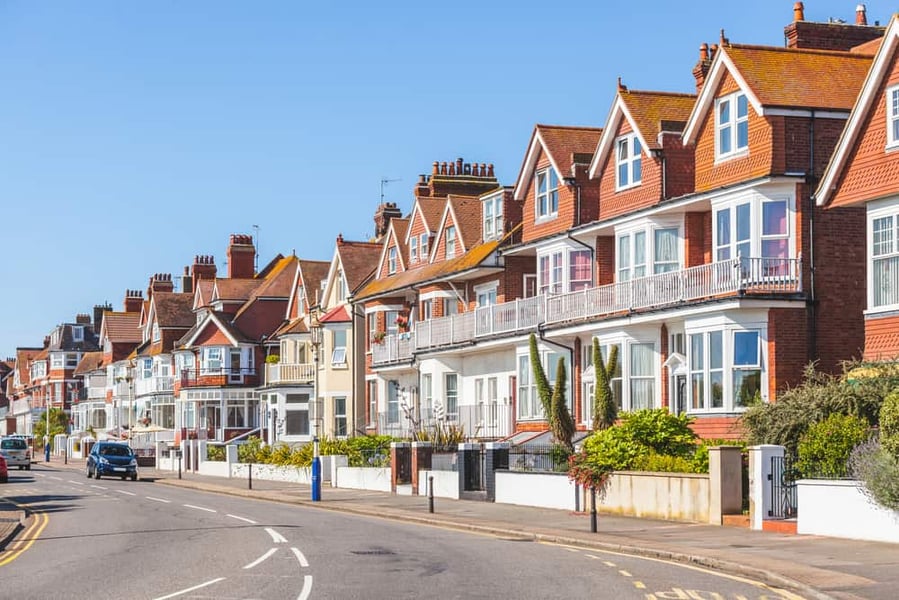Average property value reaches £298,237 as market shows resilience

House prices increased by 0.4% or £1,080 in cash terms in July, marking the largest monthly rise since early 2025, according to new figures from Halifax.
The average price of a home in the UK now stands at £298,237, representing a 2.4% increase compared to the same period last year.
Amanda Bryden, head of mortgages at Halifax, noted that affordability remains a concern for many prospective buyers, but pointed to recent trends that may offer some relief. “Challenges remain for those looking to move up or onto the property ladder. But with mortgage rates continuing to ease and wages still rising, the picture on affordability is gradually improving,” she said.
“Combined with the more flexible affordability assessments now in place, the result is a housing market that continues to show resilience, with activity levels holding up well. We expect house prices to follow a steady path of modest gains through the rest of the year.”

Other industry professionals have also weighed in on the latest Halifax House Price Index, highlighting both opportunities and ongoing challenges for buyers and sellers.
“This is a glimmer of good news for consumers considering it has been reported that there are economic headwinds ahead of us soon, and this news proves that house prices are adapting to recent Stamp Duty changes despite other reports suggesting that housing activity has slowed due to these tax increases,” said Nathan Emerson, chief executive officer at Propertymark.
“Lenders are adapting to market trends by offering more competitive products, however, with the average deposit needed to purchase a home now exceeding £60,000, more support is needed to make homeownership a realistic aspiration for more people.
“The UK government and the devolved administrations must prioritise housebuilding to void the gap between supply and demand, which ultimately will help bring down house prices in the long-term, as well as the Bank of England reducing interest rates as soon as possible to further improve affordability.”

According to Tomer Aboody, director at specialist lender MT Finance, recent shifts in the market are giving buyers more confidence. “Lower mortgage rates, combined with sellers pricing more sensibly even though the national average house price is close to a record high, is encouraging buyers to transact and take advantage of finding themselves in a reasonably strong position,” he said.
“With at least one more rate cut expected this year, both buyers and sellers are hoping for a strong second half of the year.”
Mark Harris, chief executive of mortgage broker SPF Private Clients, agreed that the prospect of another interest rate reduction could further support the market. “Another cut in interest rates this month, as expected by the markets, should further boost confidence and activity in the housing market,” he said.
“While inflation remains higher than the Bank of England’s target, wage inflation is slowing and unemployment rising. However, despite wider economic uncertainties the picture for potential home buyers remains broadly stable. “Mortgage rates continue to edge downwards but it’s not just pricing that is improving with lenders also broadening policy, including increasing loan-to-income caps and lowering some income requirements, which is boosting affordability.”
Thousands to face higher repayments
The Halifax report also highlighted the impact of fixed rate mortgage deals coming to an end in the second half of 2025. Many homeowners who secured loans during the pandemic, when interest rates were low and house prices surged, will soon face new repayment terms.
“The second half of this year will see a notable rise in homeowners coming to the end of fixed rate deals taken out during the pandemic-era property boom; a period marked by ultra-low interest rates and soaring house prices,” Bryden said. “While most borrowers coming to the end of five-year fixed-rate mortgage deals will see their monthly repayments rise, the extent of this will vary across households.
“Those coming off a two year fixed rate are very likely to see their monthly payments come down, as they originally locked in rates during the peak that followed the 2022 mini-budget. We’re unlikely to see a significant impact on house prices, but it may influence market dynamics if prospective home movers choose to delay plans as a result of tighter budgets.”
Price growth varies sharply by region
“While the national average remains close to a record high, it’s worth remembering that prices vary widely across the country depending on a number of factors, not least location and property type,” Bryden said.
Regional data from Halifax shows that Northern Ireland recorded the strongest annual growth, with prices rising 9.3% to an average of £214,832. Scotland also saw an increase, with prices up 4.7% to £215,238. In Wales, the average property price climbed 2.7% to £227,928.
Among English regions, the North West and Yorkshire & the Humber experienced the highest annual growth rates, both up 4.0% to £242,293 and £215,532, respectively. The South West, London, and the South East saw more modest gains, with prices rising by 0.2% and 0.5%. London remains the most expensive region, with an average property price of £539,914.
Want to be regularly updated with mortgage news and features? Get exclusive interviews, breaking news, and industry events in your inbox – subscribe to our FREE daily newsletter. You can also follow us on Facebook, X (formerly Twitter), and LinkedIn.



